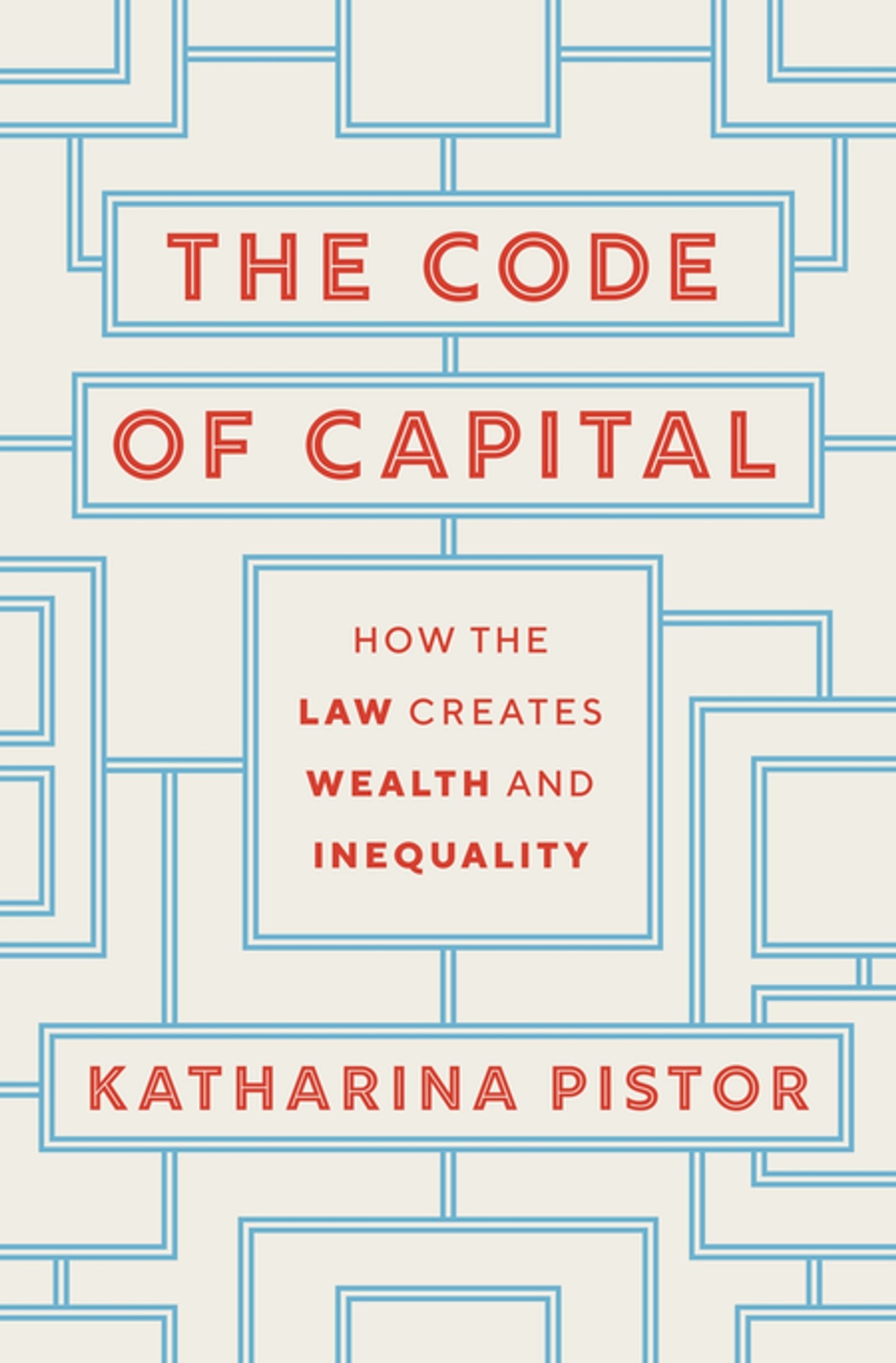
## Metaveri
Başlık: **The Code of Capital: How the Law Creates Wealth and Inequality**
Yazar: *Katharina Pistor*
Kategori: #books
## Altı Çizilenler
- Fundamentally, capital is made from two ingredients: an asset, and the legal code. I use the term “asset” broadly to denote any object, claim, skill, or idea, regardless of its form. In their unadulterated appearance, these simple assets are just that: a piece of dirt, a building, a promise to receive payment at a future date, an idea for a new drug, or a string of digital code. With the right legal coding, any of these assets can be turned into capital and thereby increase its propensity to create wealth for its holder(s).
- The most important ones are contract law, property rights, collateral law, trust, corporate, and bankruptcy law. These are the *modules* from which capital is coded. They bestow important attributes on assets and thereby privilege its holder: *Priority*, which ranks competing claims to the same assets; *durability*, which extends priority claims in time; *universality*, which extends them in space; and *convertibility*, which operates as an insurance device that allows holders to convert their private credit claims into state money on demand and thereby protect their nominal value, for only legal tender can be a true store of value, as will be further explained in chapter 4.
- The traditional concepts of the common law of property were created for and by the ruling classes at a time when the bulk of their capital was land. Nowadays the great wealth lies in stocks, shares, bonds and the like, and is not just movable but mobile, crossing oceans at the touch of a key-pad in the search for a fiscal utopia. ( . . . ) In terms of legal theory and technique, however, there has been a profound if little discussed evolution by which the concepts originally devised for real property have been detached from their original object, only to survive and flourish as a means of handling abstract value. The feudal calculus lives and breeds, but its habitat is wealth not land.
- Whereas conventional wisdom attributes the operation of the invisible hand to the market, it might just as well be read as a reference to the quality of the rules of the game where business is conducted. The invisible hand does its job under weak institutions; it becomes superfluous once institutions are in place that allow economic agents to enforce their rights and interests anywhere.
- Opting out of one and into a different legal regime leaves only a paper or digital trail but will not compromise the code’s power as long as there is at least one state that is willing to back it.
- Realizing the centrality and power of law for coding capital has important implications for understanding the political economy of capitalism. It shifts attention from class identity and class struggle to the question of who has access to and control over the legal code and its masters: the landed elites; the long-distance traders and merchant banks; the shareholders of corporations that own production facilities or simply hold assets behind a corporate veil; the banks who grant loans, issue credit cards, and student loans; and the non-bank financial intermediaries that issue complex financial assets, including asset-backed securities and derivatives. The craftsmanship of their lawyers, the code’s masters, explains the adaptability of the code to the ever-changing roster of assets; and the wealth-creating benefits of capital help explain why states have been only too willing to vindicate and enforce innovative legal coding strategies.